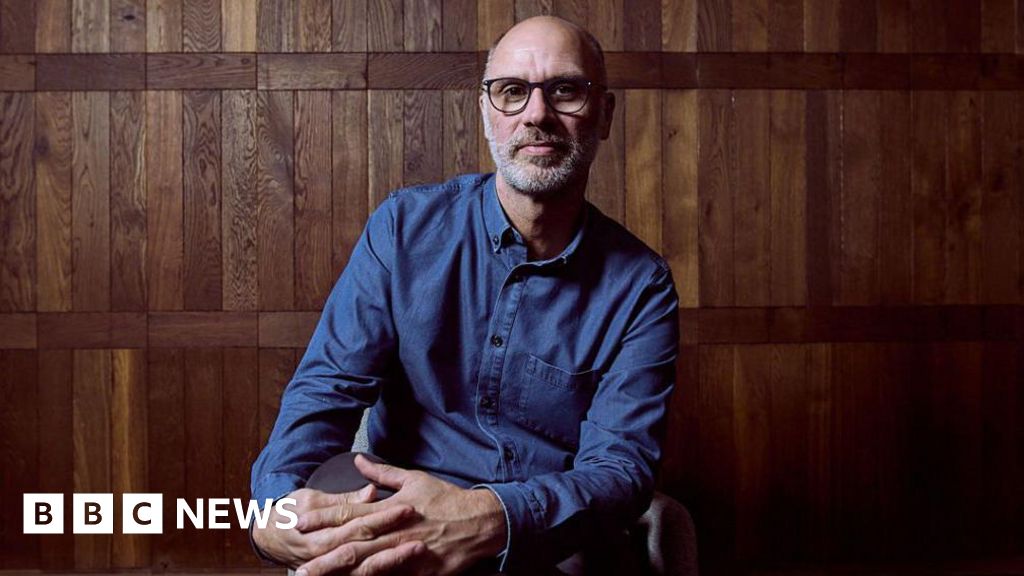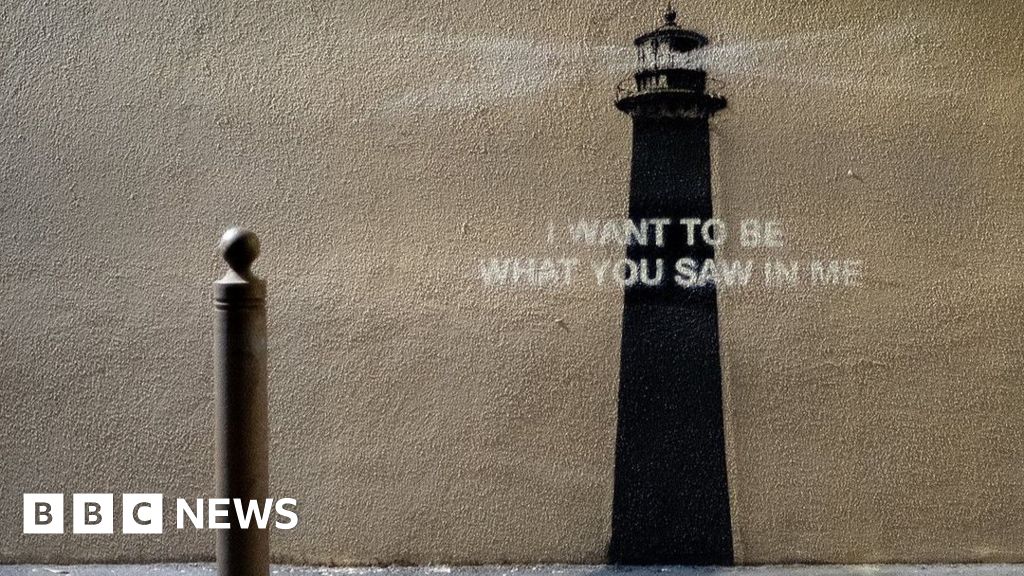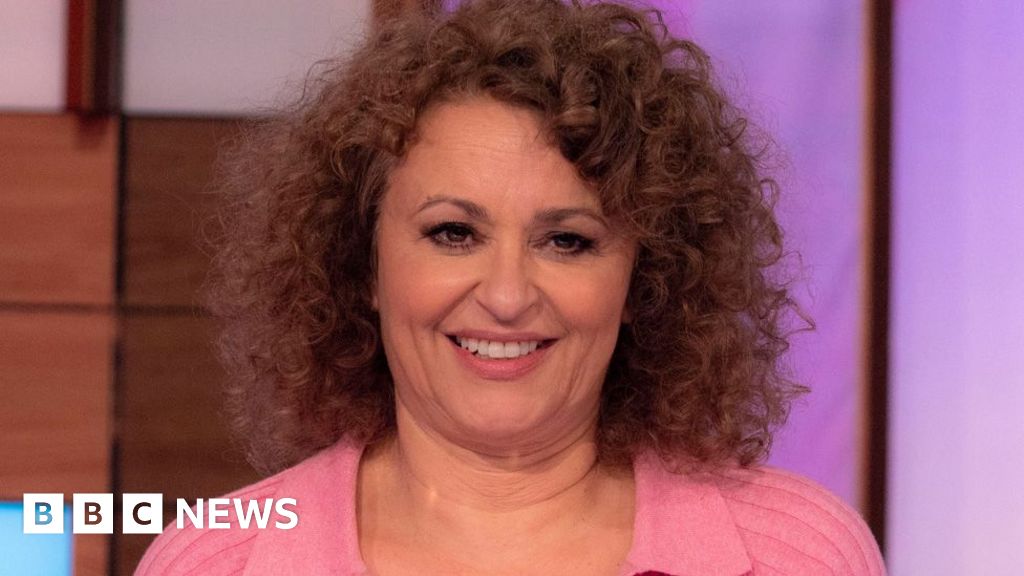ARTICLE AD BOX
By Emma Saunders
Entertainment reporter
Image source, Ruth Connolly
Writer and academic Emilie Pine tells me she likes a challenge, and taking up a post as writer-in-residence at a maternity hospital - having endured the pain of infertility - certainly sounds like one.
The Dublin professor won plaudits for her searingly honest autobiographical essay collection, Notes to Self, published in 2019, which explored her own experiences of infertility and miscarriage, among other topics.
For her highly anticipated debut novel, Ruth & Pen, Pine returns to the theme of baby loss, examining one couple's painful infertility journey, as it puts a solid and loving marriage on the brink.
The novel follows two women - you've guessed it, Ruth & Pen - during a single day in Dublin. Ruth is a 30-something therapist who is on the verge of breaking up with her husband following several failed IVF attempts and a miscarriage. Teenager Pen has autism and is struggling to find her place in the world.
The pair are strangers but cross paths briefly as they go about their day in the bustling city, against the backdrop of a climate change protest.
The idea for the novel came to Pine when she was writer-in-residence at Dublin's National Maternity Hospital. Given the painful infertility Pine and her partner have endured themselves, the decision to place herself in a maternity hospital may sound to many like a unique form of self-punishment.
"It felt like a challenge. And I don't like to back down from a challenge. It was…very, very difficult to be in the building and to have this space that was away from the labour wards, but I would have to walk through the labour wards to leave.
"I hadn't anticipated how hard that would be on a daily basis. And I'm really glad I did it. I went into the hospital with the mindset of a patient and with my experience… (then) I started to understand it as an institution from the point of view of people who worked there."
Set in Dublin over 24 hours, the characters traverse the city streets, meeting various people along the way. So, just how much of an influence was James Joyce and modernist literature?
"It was totally conscious!" Pine laughs. "I love it. I thought in that moment of decision about allowing myself to write: 'Well, I'm going to write the books that I love, in a style that I love reading, and why not aim high?' And Mrs Dalloway [Virginia Woolf] is probably more of an influence.
"But Ulysses is … the context in which anything written about Dublin just feels like it's being written within. And I work in University College Dublin, which is Joyce's alma mater. It's a really rich context to work in.
"The ending of Ruth & Pen very much resonates with the ending of Ulysses. But I also took Ulysses and I put it really far away from me while I was writing so that I didn't have to look at it. It's there, but it's like the unconscious."
Image source, Getty Images
Image caption,Pen and Alice attend a climate change protest in Dublin
While the narrative is largely written from Ruth's perspective - not least the brutal physical experience of her miscarriage - Pine says it was also important to give Ruth's husband Aidan a voice - and he has been given several chapters of his own.
"Part of my experience of being based in the hospital was to see how much women are identified as the primary parent and as primary sufferer. Aidan says at one point that he wasn't entitled to counselling in the hospital without Ruth being present. "
While she had her own experience to draw on for Ruth, Pine had more research to do for Pen and her story, which runs in parallel with Ruth's: "I'm going to sound like one of those floaty people which I'm really not, but I just knew that Pen was autistic.
"I am sick of characters who have anything interesting about them being on the on the margins, right? And it's the same with infertile women. They're the weird aunt at the party, but not the centre of the party. And so (it's about) moving characters who are so often marginalised into the centre, and allowing them agency. You see the world through Pen's eyes, I hope."
Teenage sex
In a blog post for Research Autism last month, Adriana White discussed the stereotypes and tropes of autistic characters, including the "annoying sibling/sidekick" and the "unrealistic inspiration".
Pen is none of those - for a start she's female when characters with autism are more often than not male. She's a fully formed protagonist with her own narrative and sense of self, her own dreams and aspirations which sit alongside her struggles.
Pen has a supportive mother and a solid friendship with Alice, which she would like to become something more. She grapples with noise, crowds and anxiety, has been bullied at school and has previously self-harmed.
"Pen is a teenager, and I had written about my own crazy teenage life in Notes to Self, but I also wanted to represent that not all 16-year-olds are having sex but they might be wanting to or thinking about it. It's this moment where you're on the border between childhood and adulthood, and how you're negotiating that, and how that's difficult."
In the final chapter, Pen has a moment of reflection when she says "there is no normal".
As a society, are we shifting away from one rigid idea of normal?
'Compulsory motherhood'
"I think we are but I think it's slow and there's a long way to go. I also think that the people who are shifting it are bearing all of the cost and emotional labour of doing it, and often that has a huge impact on their lives. So, I think the more that can be part of a shared, open, multiple-perspective conversation, the better."
Perhaps the most powerful moment in the novel is when Ruth and Pen, who are strangers, come across each other in a gallery. Ruth stops to help Pen, who is having a panic attack. Ruth may not be able to physically be a mother but that doesn't stop her from being a motherly figure.
"There's that sense of Ruth just being exactly who Pen needs in that moment. And it's an act of deep care between strangers. And I love that," Pine says.
"Ruth can be a meaningful, caring person without having this dimension [being a mother]. The sense of compulsory motherhood that comes through culturally so often is something that I think is really oppressive, and makes it incredibly difficult when you're in the position of not becoming a parent when you want to be one."
For Pine, writing her first novel has been something of a liberating experience.
"When my life didn't turn out the way I wanted it to, in terms of having children, I think that forces a conversation. It's not that the novel is my baby, but more that I really wanted to imagine myself in a new way, and this has been a huge part of that."

 3 years ago
65
3 years ago
65








 English (US) ·
English (US) ·